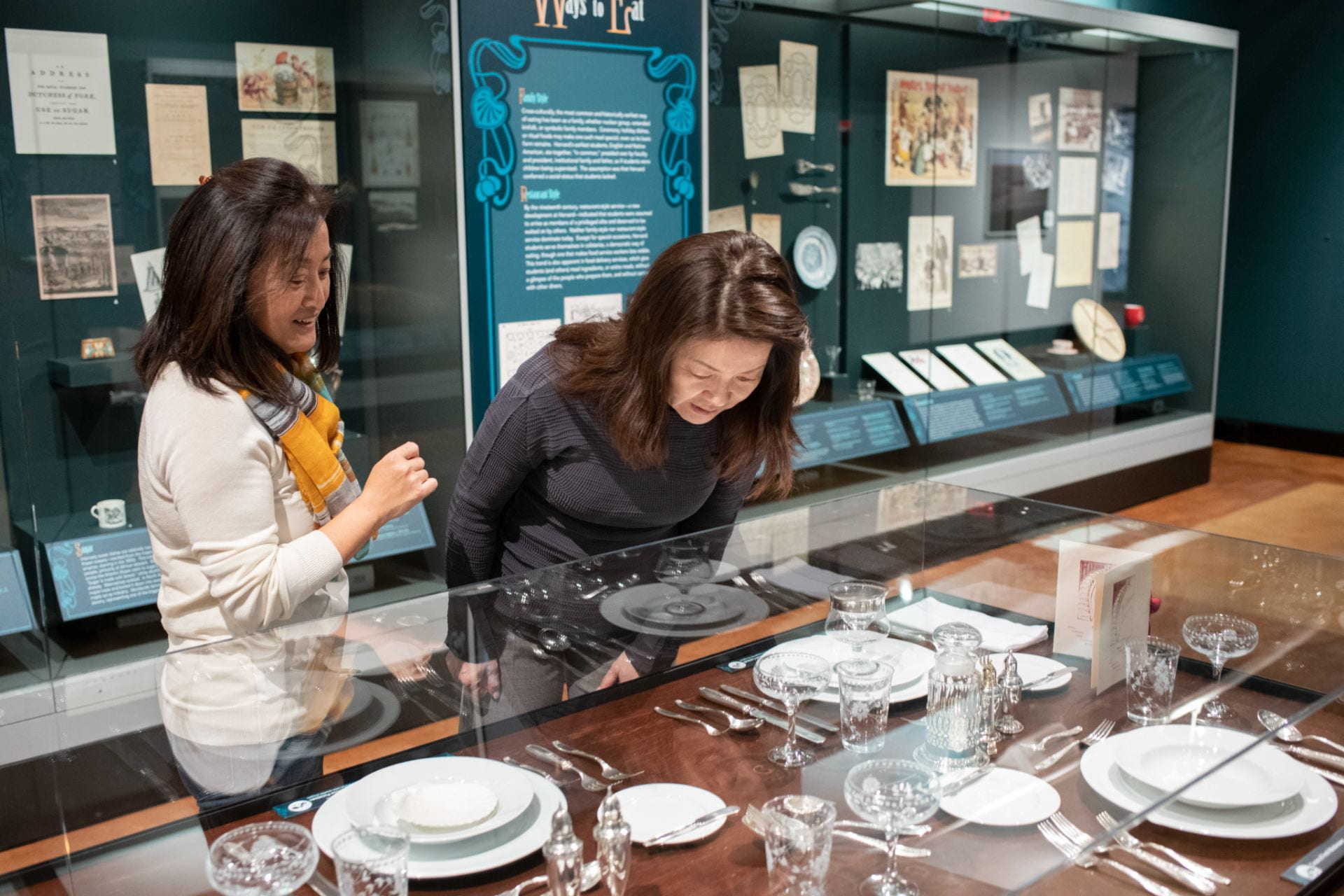(Cambridge, MA) The Harvard Museum of Natural History announces the renovation and remodeling of their signature gallery exhibiting the internationally-acclaimed Ware Collection of Blaschka Glass Models of Plants, popularly called the Glass Flowers. The Glass Flowers gallery, which first opened in April 1893, has been closed to the public since late November. From now until mid-April, a small selection of 268 botanical models from 25 plant species is on temporary display adjacent to some five dozen of the Blaschkas’ Sea Creatures in Glass, the models of glass invertebrates– jellyfish, anemones, cephalopods — from the collections of Harvard’s Museum of Comparative Zoology.
During the closure, original historic wood and glass display cases will be rebuilt with new non-reflective glass and adjustments to allow fully accessible viewing, as well as easier access for changing the displays. New state-of-the-art lighting, humidity, and vibration control systems will be installed. New space design and interpretation will combine to create a stunning new exhibition showcasing the unique history, unparalleled artistry, and ongoing scientific relevance of the Glass Flowers. The goal of the renovation is to improve and enhance the visitors’ experience of these unique models.
Charles Davis, Director of the Harvard University Herbaria, commented, “The Glass Flowers are one of Harvard’s greatest treasures. They are a combination of unparalleled artistic beauty and scientific rigor. I am thrilled that they are receiving the special care and attention that they so well deserve.”
The Harvard University Herbaria’s long-term conservation project of the Ware Collection will continue for years to come. This project involves some models that are not currently on display. Some of these have experienced minor damage due to their extreme fragility and from the failure of the original 19th century glue that the Blaschkas used in their construction. Donald H. Pfister, Asa Gray Professor of Systemic Botany at Harvard added, “For the first time serious attention to the conservation of the collection will be possible, along with the chance to mount special, themed changing exhibits.”
The Glass Flowers will reopen May 21, 2016 just before Harvard Commencement, with a series of events celebrating the historic renovation and grand reopening. In this exhibit one can see examples of the flora of the world in bloom all at once.
The Glass Flowers were commissioned in1886 by what is now the Harvard University Herbaria from the German glass artisans, Leopold Blaschka and his son Rudolf. Over the span of five decades the two created Harvard’s collection of some 4,200 of one-of-a-kind botanical masterpieces.
The new exhibition is supported by a generous gift in memory of Melvin R. Seiden AB ’52, LLB ’55 and a grant provided by the Massachusetts Cultural Facilities Fund, a program of the Commonwealth of Massachusetts administered through a collaborative arrangement between MassDevelopment and the Massachusetts Cultural Council.
“I’m delighted that through the support of these generous donors we are able to transform our display of these amazing exquisite works of art, and give them the state-of-the-art exhibit treatment they deserve,” said Jane Pickering, Executive Director of the Harvard Museums of Science & Culture.
The Harvard Museum of Natural History offers 15 additional galleries for visitors, including the newly opened Marine Life in the Putnam Family Gallery, Islands: Evolving in Isolation, and the Earth & Planetary Sciences gallery displaying some 3,000 rare minerals and gemstones. One ticket also covers admission to the adjacent Peabody Museum of Archaeology & Ethnology.
About the Harvard Museum of Natural History
One of the Harvard Museums of Science & Culture, the Harvard Museum of Natural History is located at 26 Oxford Street, Cambridge, on the Harvard campus, a 7-minute walk from the Harvard Square Red Line MBTA station. The museum is wheelchair accessible. The museum is open from 9:00 am to 5:00 pm, 361 days/year. Admission: adults $12; seniors and students, $10; youth ages 3–18, $8; under 3 free. For directions, exhibition schedules, lectures, and information on parking, see the website hmnh.harvard.edu or call 617.495.3045.
# # #
Media Contact: Blue Magruder, Director of Public Affairs
Harvard Museums of Science & Culture
617-496-0049
For more on the Glass Flowers, see the Harvard University Herbaria website, http://huh.harvard.edu/glass-flowers and the Harvard Museum of Natural History website at http://hmnh.harvard.edu/glass-flowers.
